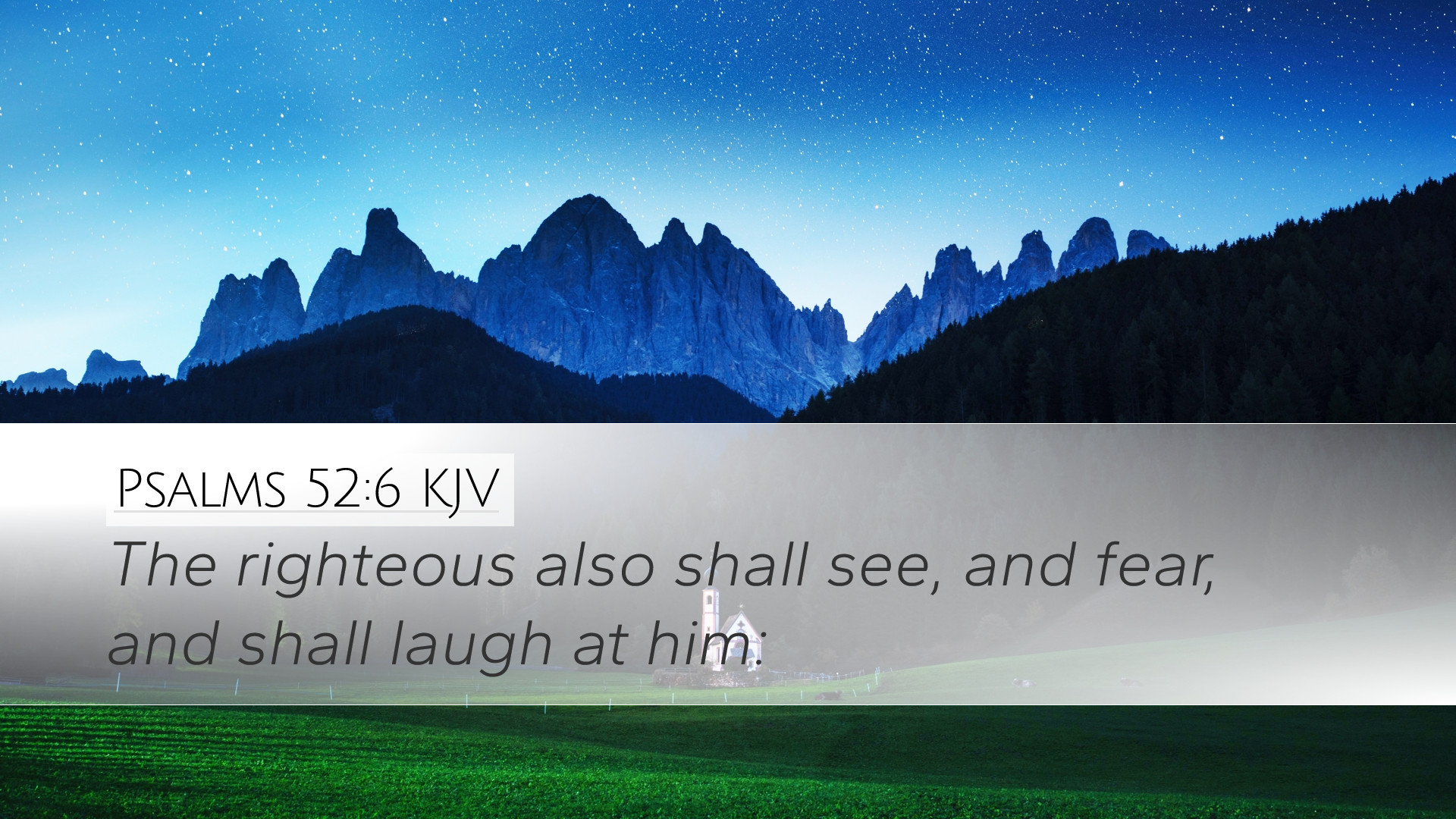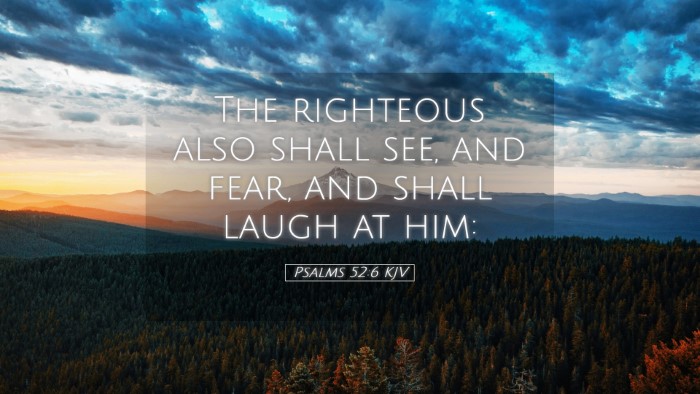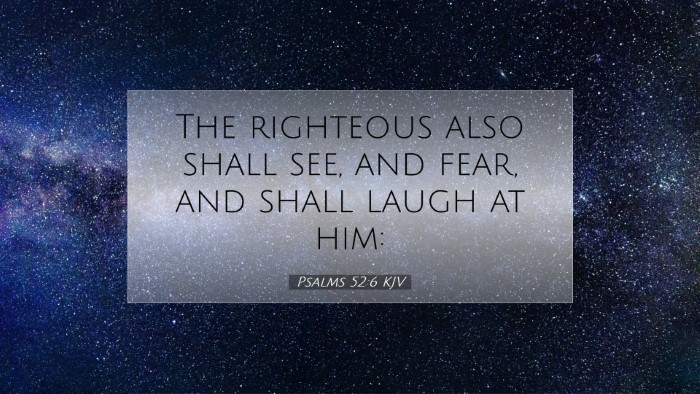Psalms 52:6 Commentary
Bible Verse: Psalms 52:6 - "The righteous also shall see, and fear, and shall laugh at him."
Introduction
This verse from the Psalms echoes the themes of divine justice and the triumph of the righteous over the wicked. When contemplating this verse, we find profound insights into the nature of righteousness, judgment, and the ultimate fate of the ungodly. Commentary from renowned theologians can help unpack these elements for pastors, students, and scholars alike.
Contextual Background
Psalms 52 is attributed to David and addresses the situation surrounding Doeg the Edomite, who betrayed David and killed the priests of Nob. This context is vital to understanding the contrast between David's righteous standing and the wicked actions of Doeg. The psalm serves as both a lament and a declaration of faith in God's justice.
Commentary Insights
Matthew Henry's Commentary
Matthew Henry emphasizes the stark contrast between the wicked and the righteous. He notes that while the wicked may seem to prosper for a time, their fate is ultimately despair and retribution. In verse 6, he highlights that the righteous will not only "see" the judgment of the wicked but will also "fear" that same God who dispenses justice. The fear mentioned is one of reverence, recognizing God's sovereign power over all.
Albert Barnes' Notes
Albert Barnes illuminates that the 'righteous' referred to in this psalm signifies those who are aligned with God through faith and obedience. He interprets the phrase "shall laugh at him" as a demonstration of ultimate confidence in God's justice. This laughter symbolizes a deep-seated assurance that God’s truth prevails over deceitful human schemes. Barnes explains that this reaction reflects the righteous’s understanding of the fleeting nature of the wicked’s success.
Adam Clarke's Commentary
Adam Clarke provides a broader theological perspective, suggesting that the righteous observing the punishment of the wicked serves not only as a confirmation of God's justice but also as a warning. Clarke notes that such instances instill a healthy fear or awe in the hearts of the faithful, encouraging them to continue in their pursuit of righteousness and avoid the pitfalls of wickedness. The laughter mentioned is a sign of confidence, a recognition that the oppressor's reign is temporary.
Theological Implications
The implications of Psalms 52:6 extend into themes of divine justice and the ultimate reconciliation of God’s people. The righteous' response—seeing, fearing, and laughing—implies a comprehensive understanding of the sovereignty of God over all earthly affairs. For theologians, this verse serves as a pivotal reminder of the assurance provided to the faithful, that while evil may flourish momentarily, it will not stand in the end.
Applications for Pastors and Scholars
For pastors, this verse provides a powerful illustration to illustrate sermons on the righteousness of God and the consequences of sin. The imagery of laughter can be very effective in ministering hope to congregations facing injustices. Emphasizing God's ultimate sovereignty can remind believers of their call to righteousness amidst adversity.
For scholars and students of the Word, this scripture invites deeper exploration into the nature of God's justice as portrayed throughout the Psalms. Analysis of the poetic structure and the implications of fear and laughter can yield rich theological discussions that enhance our understanding of the character of God.
Conclusion
Psalms 52:6 encapsulates a significant truth in the life of faith: God’s justice prevails, and the righteous will ultimately find vindication. The insights from public domain commentaries such as those from Matthew Henry, Albert Barnes, and Adam Clarke, offer a multifaceted view of this powerful verse, enriching our understanding and application as we strive to live righteously in a world often marked by injustice.


